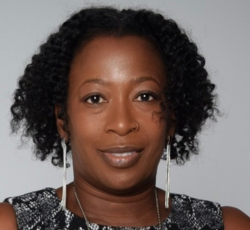
Independent Consultant
Living with bipolar disorder
Although she wasn’t diagnosed with bipolar disorder until her 40s, Ruth had known she wasn’t okay since her early 20s… she just didn’t have a name for it. Combined with what she learned through comprehensive long-term mental health treatment, she used her skills as a researcher to learn the latest science about her condition and strategies for managing it. This led Ruth to write two books on bipolar disorder. Today, she feels “successful, happy and healthy.” She defines her success as being symptom-free (no depression or mania) for more than a decade, with the ability to perform at a ‘high level’, including as a tech executive and a consultant to Fortune 500 companies.
Ruth’s Story
What was your most difficult time?
When, in 2004, I ended up in a psychiatric hospital for a week because I was suicidal and was forced to go on medical leave from my professorship for the entire next semester. It took me an extra year to get tenure in 2009.
How has your condition impacted your life?
Well… it inspired me to become a recognized expert on stress management because of the impact of stress on mental health and wellbeing – with two books and many articles on the topic, numerous media appearances, and being an in-demand speaker/consultant. On the other side, I have also had to give up my independence at times, and have friends help me manage my life. In addition, some of the medications I took negatively impacted my kidneys, heart and thyroid.
What helped you get well and move to stability?
I did lots of research on brain functioning. I used my findings to adapt to new health behaviors based on neurological research findings. Regular exercise, healthy nutrition, good sleep hygiene and a focus on interpersonal relationships have reduced my symptoms, which in turn, reduced my dependence on medications and almost eliminated my need for psychiatric care.
How do you manage your condition and stay healthy?
I exercise regularly, eat “brain” foods, sleep as much as I need to and maintain strong connections with people I love and care about. I chose to “go digital” in my work — which means that I can connect with my loved ones for whenever I need to, wherever I am. This has changed my life in a very positive way.
What words of encouragement would you give to someone struggling with a condition similar to yours?
I would tell them that there is a lot of science about how the brain works that can be used to implement strategies to maximize brain functioning and significantly reduce the likelihood of depression or mania. I would tell them that remission and recovery are possible and can be maintained long-term. I would tell them that a mental health condition may be a lifetime diagnosis, but you can survive, heal and thrive.
